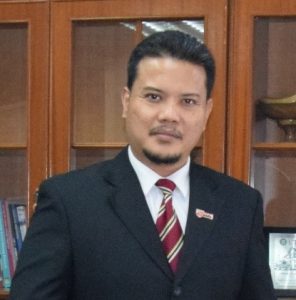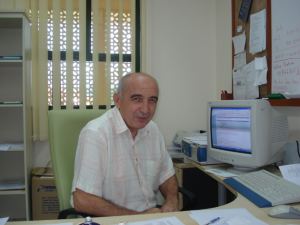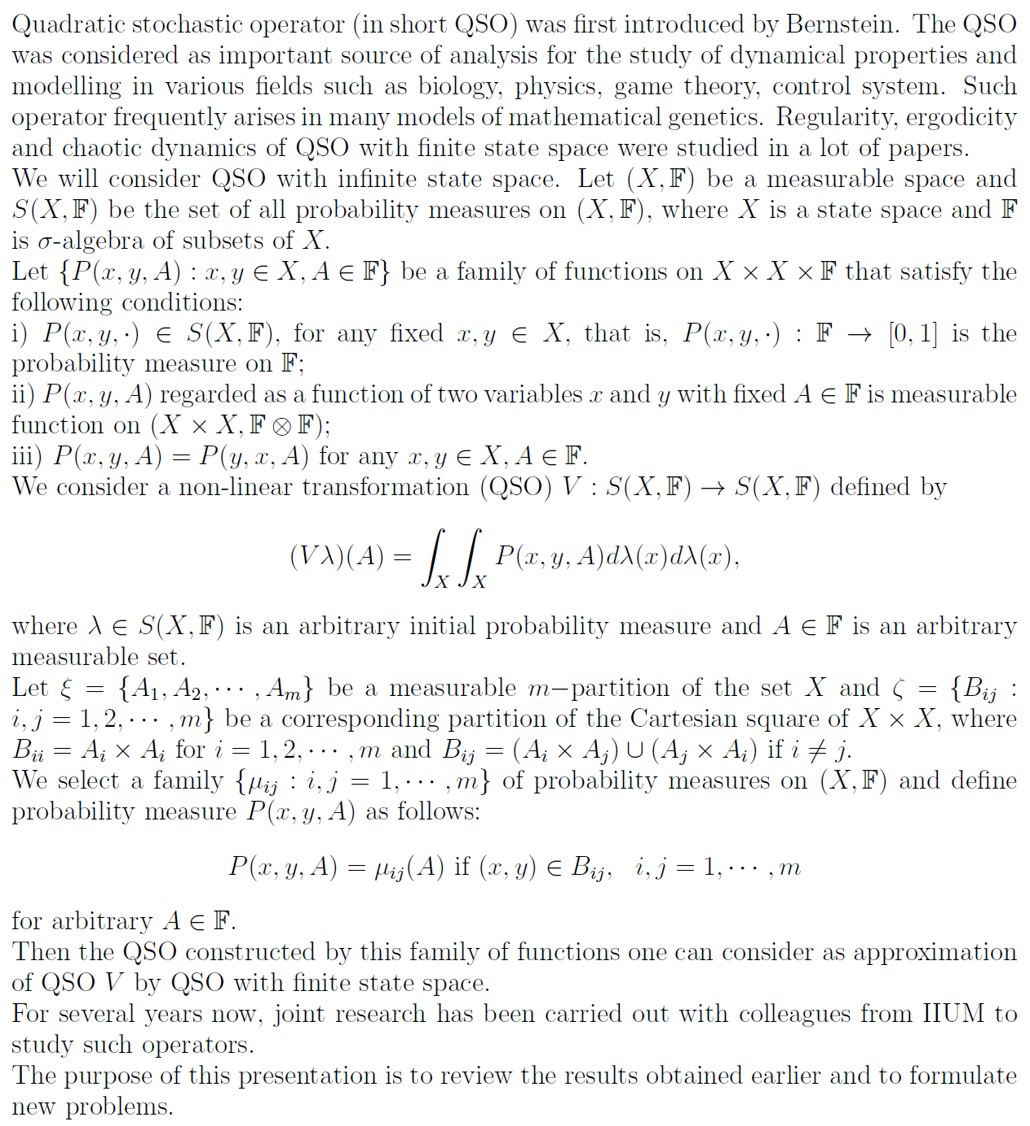Keynote Speaker 1

Prof. Dr. Muhammad Rezal bin Kamel Ariffin
Institute for Mathematical Research & Department of Mathematics and Statistics
Faculty of Science
Universiti Putra Malaysia (UPM)
Biography
PROF. DR. MUHAMMAD REZAL BIN KAMEL ARIFFIN received his B.S. and M.S. degrees in mathematics from Universiti Putra Malaysia (UPM), Malaysia, in 1999 and 2002, respectively, and his Ph.D degree in mathematics from Universiti Kebangsaan Malaysia (UKM), Malaysia, in 2009. He is currently the Director of the Institute for Mathematical Research, UPM and a Professor with the Department of Mathematics and Statistics, Faculty of Science, UPM. A total of 6 PhD students in the field of Mathematical Cryptography has graduated under his supervision and 7 for the MSc degree also in the same field of study. Currently he has 7 PhD and 1 MSc student undergoing research in Mathematical Cryptography. He has published more than 120 articles in international journals, conferences, and book chapters. In 2007, he pioneered the establishment of the Malaysian Society for Cryptology Research (MSCR). He is currently the President of MSCR beginning December 2020. He is the General Chair for the bi-annual International Cryptology and Information Security Conference (CRYPTOLOGY) series in 2008, 2010, 2012, 2014, 2016, 2018 and 2020. He will also chair for 2022. He is on the scientific committee for AfricaCrypt for the years 2016, 2017, 2019 and 2020. He has participated with various agencies in Malaysia on issues surrounding cryptography. Three notable deliverables are the Dasar Kriptografi Negara with CyberSecurity Malaysia and National Cyber Security Agency (2010-2013), the Government Public Key Infrastructure Framework with MAMPU in 2016 and the development of the national trusted cryptographic list – Senarai Algoritma Kriptografi Terpecaya Negara (MySEAL) with CyberSecurity Malaysia (2016-2020). His overwhelming research interests is cryptography specifically designing and analysing number theoretic based cryptosystems and post-quantum cryptography. He also has interest in chaos dynamical systems. He, with his dedicated research team, is looking forward to exploring methods towards the development of post quantum cryptography for seamless drop-in replacement and is also hoping to find better methods to reduce the complexity of the RSA problem.
Title: Cryptography – The history, science, and nation building.
Abstract: This talk revolves around the highly hyped field of cryptography. The terms blockchain / crypto currency are among the most hyped “technology” related to cryptography. In fact, the term “crypto” has been misused to refer to crypto currency, while the fact is “crypto” is the short form for cryptography. I will begin the presentation by putting forward a compressed “historical world-view” of cryptography. The spectrum would be from application of cryptography Before Christ (BC), developments during World War 2 up until “modern” cryptography. This should provide some form of motivation for the audience. I will then discuss current research interest in UPM within my research group. Finally, I will discuss cryptography within in the aspect of Nation Building. Among the “important” aspects is the Malaysian Socio-economic Drivers: Vertical Perspective of 10-10 MySTIE Framework and the Malaysian Cyber Security Strategy (MCSS).
Keynote Speaker 2

Prof. Dr. Nasir Ganikhodjaev
Institute of Mathematics, Tashkent, Uzbekistan
Biography
Professor Nasir Ganikhodjaev is a distinguished professor who made significant contributions in the field of the lattice models of statistical mechanics, dynamical systems and ergodic theory, and stochastic processes. His fundamental results on phase transitions and Gibbs measures theory, on analytic and ergodic theory of quadratic stochastic operators and processes have been recognized worldwide.
Professor Nasir Ganikhodjaev was born on January 18, 1947, in Tashkent, Uzbekistan. He graduated from the high school and Tashkent State University respectively in 1965 and 1971. In 1975, he earned his Ph.D. under the supervision of Professor Vinokurov V. G. He obtained his Doctor of Science degree from Institute for Low Temperature Physics, Kharkov, Ukraine, in 1991.
During the period from 1971-1997, he held positions starting from Junior Research Assistant up to Leading Research Fellow at Institute of Mathematics. During the period 1997-2003, he held a position of head of Functional analysis department at National University of Uzbekistan. During the period from June 2003- September 2020, he held a position of professor at the department of Computational & Theoretical Sciences, Faculty of Science, International Islamic University Malaysia. After coming back to Uzbekistan from January 2021, he is working as the Leading Researcher at the laboratory of “Stochastic Analysis” at Institute of Mathematics Academy of Sciences Uzbekistan.
Prior joining IIUM Professor Nasir Ganikhodjaev had three (3) D.Sc., ten (10) PhD, and more than the (10) M.Sc. students. During his service at IIUM, he was a PhD supervisor of Assoc. Prof. Dr. Pah Chin Hee, Assoc. Prof. Dr. Nur Zatul Akmar Hamzah, and Asst.Prof. Dr. Mohd Hirzie Mohd Rodzhan. He was also a M.Sc. thesis supervisor of many other students at IIUM including Assoc. Prof. Dr. Fatimah Abdul Razak and Asst. Prof. Dr Siti Fatimah Zakaria.
Professor Nasir Ganikhodjaev is the author of more than 150 journal articles published in most prestigious journals and five (5) books, a member of the Editorial Board of number of journals, attended numerous international conferences and workshops. He also gives particular attention to middle and high school mathematics. Many years (1997-2002, 2021-2022) he led Uzbekistan’s team during International Mathematics Olympiads. He is the founder of “IIUM Mathematics Competitions (IMC)” for high school students organized by the department of Computational & Theoretical Sciences, Faculty of Science, IIUM since 2005.
Title: Quadratic Stochastic Operators with Infinite State Space

